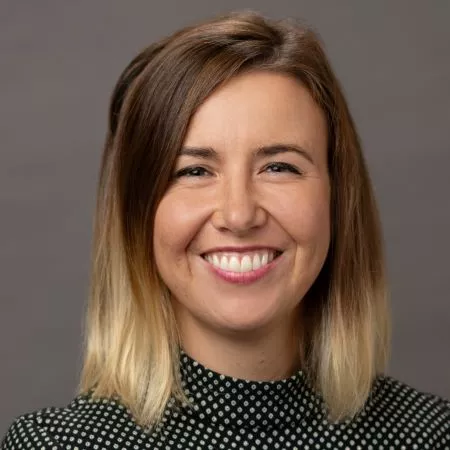From mitigating natural disasters to combating climate change, the challenges facing our world are complex and interconnected. But, what if the key to solving these problems lies in understanding not just the natural world, but also the intricacies of human behavior? This is the driving question behind Succinct Science—Audio Interviews from SESYNC. Through insightful interviews with leading experts, each episode explores how combining knowledge from the natural and social sciences can lead to innovative solutions for building a more sustainable and resilient future. Explore SESYNC's collection of podcast interviews below.
- Did you know that 25-50% of food produced in the United States is wasted? Using "Big Data" to uncover the drivers of this issue, Dr. Quentin Read discusses how we can use our understanding of ecology, environmental science, and economics to make impactful changes. Episode 1: Food Waste.
- Air quality affects all of us, but especially the most vulnerable, including children. In this episode, Dr. Kelly Jones, who is also a registered nurse, discusses how we might get a clearer picture of the air that we breath and how we might strategize for more equitable outcomes. Episode 2: Air Quality Inequality.
- Did you know that six percent of "protected areas" are comprised of... crops? This is according to research by Dr. Varsha Vijay and her colleagues, who set this baseline estimate, identified where and why this might occur, and what we can do to preserve biodiversity while combating hunger. Episode 3: Protected Areas, Food Security, & Trade-Offs.
- Did you know that most climate models don't account for humans responding and adapting to climate change? In this episode, Dr. Brian Beckage, a professor of plant biology and computer science, and Dr. Katie Lacasse, an associate professor of psychology, discuss their efforts to create more accurate climate models by integrating human behavior (and why you should too). Episode 4: Accounting for Human Behavior in Climate Models
- Who's really making the decisions about what happens on most of America's land, and how do those decisions affect us all? On this episode, Drs. Robyn Wilson and Rebecca Epanchin-Niell, break down their work on modeling land management decisions to improve environmental outcomes in the United States. (Warning: This episode may shock you.) Episode 5: Impact of Land-Owner Decisions on the Environment and All of Us
- How can we work together to create more sustainable and resilient water management systems in light of climate change? On this episode, Dr. John Matthews, Executive Director of the Alliance for Global Water Adaptation, discusses how we can bridge the gap between ecology and engineering to "eco-engineer" solutions for sustainable water management in a changing world. Episode 6: What Does Socio-Environmental Resilience Look Like?
- Is the term "natural disaster" a misnomer? In this episode, Dr. Lori Peek, Director of the Natural Hazards Center at the University of Colorado Boulder, explains the crucial distinction between natural hazards and disasters. Dr. Peek highlights the role of social science in understanding how societal factors like inequality turn natural hazards into human disasters and what we can do to reduce harm from these events. Episode 7: What Is Environmental Sociology?
- Scientists are changing the world, but are they communicating their work effectively? In this episode, learn about the five key steps to successful science communication with SESYNC's Alaina Gallagher, from setting clear goals to crafting a compelling message. Episode 8: How to Communicate Your Science | The 5 Key Steps.
A playlist of these episodes are also available on our YouTube Channel.
-
About the Presenters
Erin Duffy
Faculty SpecialistErin Duffy is a Communications Associate at the National Socio-Environmental Synthesis Center (SESYNC). In this role, she supports the communications team in designing and developing communication products that disseminate the vast knowledge created by SESYNC researchers worldwide. Inspired by the Center’s diverse and interesting projects and participants, Erin developed a podcast, Succinct Science—Audio Interviews from SESYNC, to help integrate intellectually expansive information into everyday life.
Passionate about community, individual, and environmental health and well-being, Erin has...
Erin Duffy
Faculty SpecialistErin Duffy is a Communications Associate at the National Socio-Environmental Synthesis Center (SESYNC). In this role, she supports the communications team in designing and developing communication products that disseminate the vast knowledge created by SESYNC researchers worldwide. Inspired by the Center’s diverse and interesting projects and participants, Erin developed a podcast, Succinct Science—Audio Interviews from SESYNC, to help integrate intellectually expansive information into everyday life.
Passionate about community, individual, and environmental health and well-being, Erin has worked in a variety of roles, including environmental educator; marketing associate for a social service organization, and community garden coordinator for a food bank, both through AmeriCorps; as well as a caregiver for adults with differing physical and intellectual abilities.
Erin earned a bachelor's degree in Environmental Policy and Science, and she has continued to pursue educational opportunities, most recently by becoming a certified yoga instructor and positive psychology practitioner.
